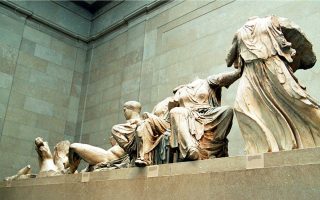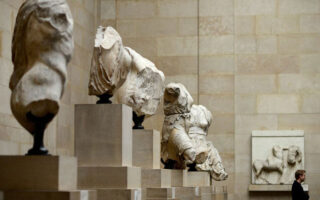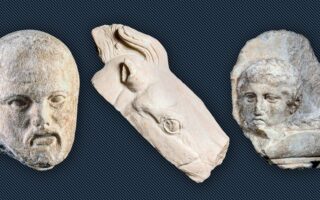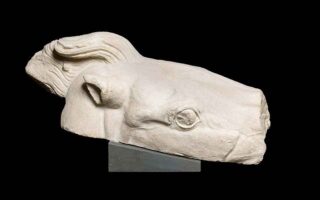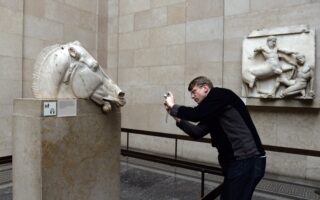Is a deal on the Parthenon Sculptures possible?
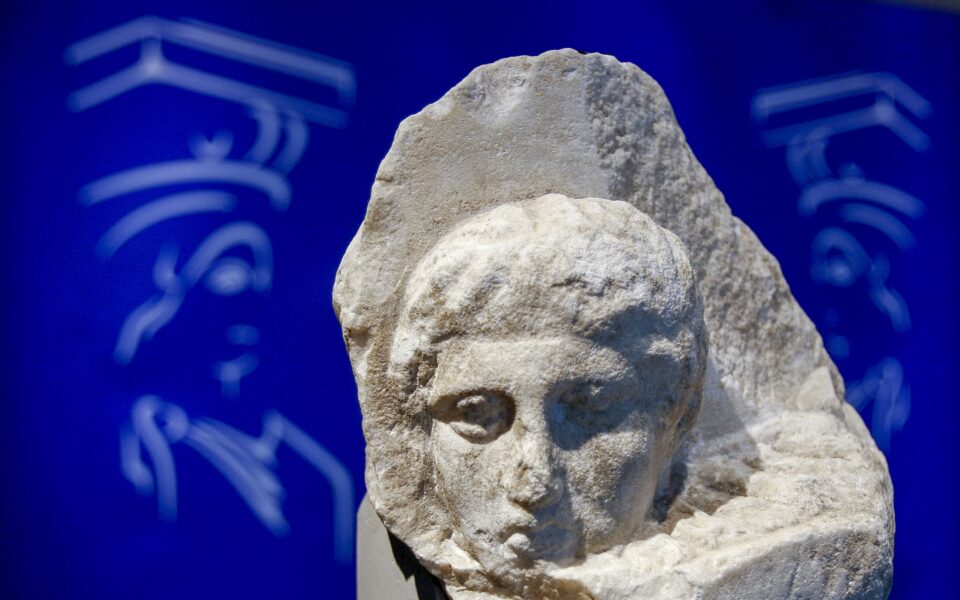
Any answer to whether an agreement is possible on the issue of the Parthenon Sculptures is unlikely to be correct. Or is it? Let’s get our facts straight first.
One thing we tend to forget when discussing their return by the UK is that Greece has something it did not have in previous years in the negotiation: A potential supporter in a key position. The chairman of the British Museum, George Osborne, has long been talking about an “agreement,” “cooperation,” a “solution” – you name it – on the issue. If there are three obstacles that need to be overcome in order to reach an agreement, Osborne is the first. The Trustees are the second and the British government is the last. Each influences the other, but none of Osborne’s predecessors has been as vocal about the issue. We do not know what Osborne may have in mind when referring to an “agreement,” so let’s look at what we do know.
Recent statements by representatives of the British government have ruled out the possibility of a change in the legislation governing the British Museum. The existing legislation prohibits any attempt to “break up” the museum’s collection, so any solution must be considered within the context of the existing legal framework and must not be perceived by the British as a removal of the artifacts.
The Greek side, meanwhile, has ruled out the option of a “cultural loan” as this would constitute recognition of Britain’s ownership of the sculptures – a red line that cannot be crossed.
Therefore, a legal formula is needed so that any solution would not look like a “removal” for one party or a “loan” for the other. The parties handling the negotiation have agreed that a win-win solution would not mean a clear victory for either side. The Parthenon Sculptures are a sensitive issue that strikes a collective chord much more strongly than any other case in the field of cultural diplomacy.
The so-called Fagan fragment from Sicily and more recently the three Parthenon fragments from the Vatican have returned or are in the process of being returned in the form of a “deposit” and “donation” so that they can remain in the Acropolis Museum on a permanent basis. Is this possible with the sculptures? There is something to be said in favor of such an arrangement, and it is being considered, but this is not quite the same case.
One source handling the negotiations from the government told us a couple of days ago that these two cases (Sicily and the Vatican) are not quite similar to the Parthenon Sculptures, where there is another legal parameter that raises the degree of difficulty.
The parties handling the negotiation have agreed that a win-win solution would not mean a clear victory for either side
The legal formula the needs to be found by the two parties so that it will serve both Greece and Britain must be one that will not encourage other countries or museums from making similar requests. “The British fear a domino of requests from Egypt and countries in the Middle East and Africa,” the same source told us.
The source is hopeful that there could be a convergence and perhaps an agreement in 2023. But to some extent, this source is, of course, biased. So what should we believe? Let’s add two more factors into the equation.
The reunification of the Parthenon Sculptures is an issue that has been raised almost exclusively by the Greek side as the directly concerned party. This is not to say that the campaign does not have allies and supporters in Britain and elsewhere, but the debate has been initiated primarily on the Greek side. That has changed recently.
Since the radical shift by the conservative London Times – which departed from its decade-long position that the “Elgin Marbles” cannot leave the British Museum – there has been an avalanche of publications and discussions that still continues. The debate over the reunification of the Parthenon Sculptures does not need Greece anymore.
The zeitgeist is another factor. The 21st century is already looking to be a far cry from the era we left behind 20 years ago and certainties in all areas of modern life are being shattered. Changes are occurring rapidly on many levels, one of which is a desire to right the wrongs of the past.
The circumstances under which the Parthenon Sculptures, the Benin Bronzes and the Rosetta Stone were plundered may have been completely different, but if we look at the bigger picture, these are cultural treasures located in other countries than those of their origin, and this cannot be tolerated by the social ethics of our time.
It is clear that the balance of power has shifted. Britain may have the upper hand in decision-making, but in terms of diplomacy its back is against the wall and it is taking a moral beating.
So far everything indicates that the momentary pain of a retreat, with the deeper symbolism of a long-overdue homecoming will tip the scales in 2023.
